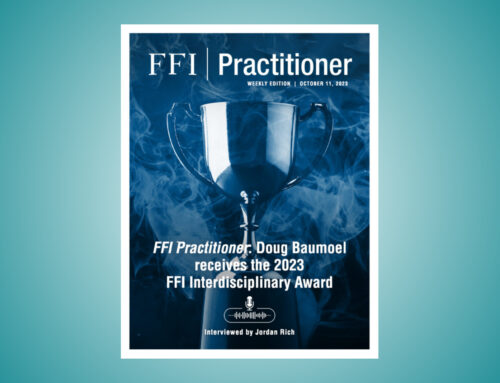3 Questions Parents and Grandparents Should Consider Before Transferring Wealth
How rushing to transfer wealth in the midst of tax changes can lead to unintended consequences, and how advisors can help clients avoid them
Byline: Doug Baumoel
Estimated read time: 3 minutes
Distributing or transferring wealth to the next generation can present unexpected dilemmas. These dilemmas have been exacerbated by expectations that the estate tax laws may change under the Biden administration. Currently, when gifting or transferring money, there is no estate tax to be paid for up to $11.7M for an individual or $23.4M for a couple. While it’s unclear when and if a change will occur, the potential tax change has motivated many affluent families to rush to take advantage of the current tax structure, as they anticipate their window of opportunity is closing for making significant tax-free gifts to their children.
However, making decisions surrounding the distribution and transfer of wealth requires careful thought. Lack of clarity regarding the purpose of the gift can lead to far-reaching unintended consequences. As Blair and I have discussed in a previous article, The Progenitor’s Dilemma, the impact of transferring or gifting wealth can control, confuse, or entitle inheritors—when most parents and grandparents would rather that their gifts empower their offspring. A rash decision to transfer wealth without the appropriate messaging and conversations can result in bad outcomes for the heir, conflict, feelings of entitlement or resentment, and more.
For advisors, it’s important to help clients understand that while it may be advantageous to act quickly, they should not lose sight of the importance of the communication that goes along with the gift or transfer. How their clients transfer wealth is as important as how much they transfer. In this blog, I’ll discuss three questions advisors should encourage clients to ask themselves before making any decisions about how they will transfer wealth to the next generation.
1. Is the distribution fair?
When transferring wealth in families with more than one heir, fairness is a major factor to consider. Who should receive more? Does the heir with a partner and children receive more than the heir who is free and single? Should the wealth be equally distributed among all of them? While these questions are important to think about, it’s also important to note that there is no right or wrong answer to what is “fair.” The answer for each family evolves through effective and smart communication—advise clients to be transparent with the recipients so everyone is on the same page and the concept of “fairness” doesn’t become an issue. For some families, fair is based on need. For other families, equal is fair or compliance to family ‘norms’ is required. Whatever the family norm, communication is key. What is considered ‘fair’ also changes with time. Communication with an adolescent needs to be much different than with an adult heir – just as is the consideration for what is fair.
2. Are recipients prepared?
Ensuring that those who are receiving the money are well educated and skilled in their acquisition of wealth is crucial. Do they understand how the money will be transferred? If it’s transferred into a trust, do they understand what that means and how that works? Do they have the required experience and understanding to manage the wealth wisely? Surrounding them with the right advisory system (now and in the future) will help them to manage, invest, and use the money wisely. If possible, suggest connecting them with a peer or mentor who has dealt with similar situations who can relate to their wealth journey. This provides the recipient with a safe space to explore their wealth and ask questions.
A skills-based assessment is also a good way to gauge whether or not the recipient is prepared to handle the wealth. For example, if an heir wants to use their wealth on a business venture, there are a few things to consider. Is this person responsible and educated in business and the particular industry of the venture? Have they made similar investments in the past or worked in the industry before? Do they have the right advisors and partners for success? Asking these questions does not imply a desire to control, second-guess or micromanage the prospective recipient. It’s simply an opportunity to provide education and guidance.
Utilizing a skill-based metric for transferring wealth can help with determining what is ‘fair’ for families (see #1 above). Rather than using an ‘equal is fair’ standard, for example, distributions based, in part, on skills provide an incentive to learn and accomplish. It sends the message that family members who are more capable to receive wealth might have access to more wealth.
Finally, it’s important for gifters to communicate their family values to the recipients—both explicitly through conversation and implicitly through their own behavior. When the recipient understands the history of the money and the values behind it, they are more likely to appreciate the wealth and handle it with care.
3. What are your intentions?
Advise clients to ask themselves what their intentions are when it comes to the transfer of wealth. Is it a gift or a transaction? The blurred line between the two is often where conflict ensues. A gift is free of judgment with no strings attached—there are no stipulations or conditions surrounding it. A transfer, however, often has other motivations (i.e. to save taxes, to protect the asset from others, to incentivize certain behaviors, etc.). Understanding the difference between a gift and a transfer and communicating that clearly to the recipient is a crucial first step.
Whether there are guidelines surrounding the use of transferred wealth or not should be clearly communicated. Having a written document explicitly stating what the guidelines are (if any), consequences for not following said guidelines, or any other conditions will establish expectations early on and avoid confusion and future conflict. Additionally, this letter of intent is especially helpful should the progenitor pass prior to having these conversations verbally.
Providing a gift, rather than a transfer, is a wonderful opportunity to communicate the level of trust, affection, and pride that prompted the gift. It is a missed opportunity to believe that the tangible gift ‘says it all.”
The unintended consequences
Not properly thinking through a transfer of wealth and hastily making decisions can lead to a number of unintended consequences, including:
- Conflict – not having clearly articulated standards for what is fair in your family can lead to feelings of betrayal and jealousy. Feeling unfairly treated by your family is a very difficult feeling to process. It can lead to threats of cutoff and retribution.
- Misunderstandings – Confusion or lack of clarity about wealth transfers being either a transaction or a gift can cause feelings of resentment rather than gratitude
- Humiliation – Feelings of being controlled when wealth is given sporadically with a lot of conditions (i.e. must be spent in very specific ways or result in specific behaviors) can serve to infantilize young adults who need to be given a degree of independence to show that they are responsible and to prove their skills
- Privilege and entitlement – when excessive wealth is given with little or no communication regarding the skills and expectations needed to receive the wealth
When it comes to transferring or distributing wealth, empowering the next generation is always the goal. Recipients who understand what the wealth is intended for and the expectations around it will make more impactful and thoughtful decisions with their acquired wealth. This involves a great deal of thought and consideration from the parent or grandparent, and even more communication and transparency between the gifter and the recipient.
While the timing of the expected tax change is uncertain, advisors should recommend their clients not to panic, but to carefully consider the above questions before transferring and distributing wealth.
We’re here to help
At Continuity, we have seen a lot of these unintended consequences come to fruition when a transfer of wealth is not thoroughly thought out. We’re skilled at helping advisors encourage families to engage in conversations that create better decision-making that lead to more impactful and purposeful transfers of wealth. Learn more about how we collaborate with advisors.
Stay in the Know
Get our latest articles, tips, and insights delivered straight to your inbox.
Share this Insight, choose your platform!
About Us
Continuity Family Business Consulting is a leading advisory firm for enterprising families. Using a full suite of service capabilities, we help families prevent and manage the single greatest threat to family and business continuity: conflict. It is through this lens that we advise our clients and build customized strategies for succession planning, corporate governance, family governance, and more. We help families improve decision making, maximize potential and achieve continuity. To inquire, contact us.












